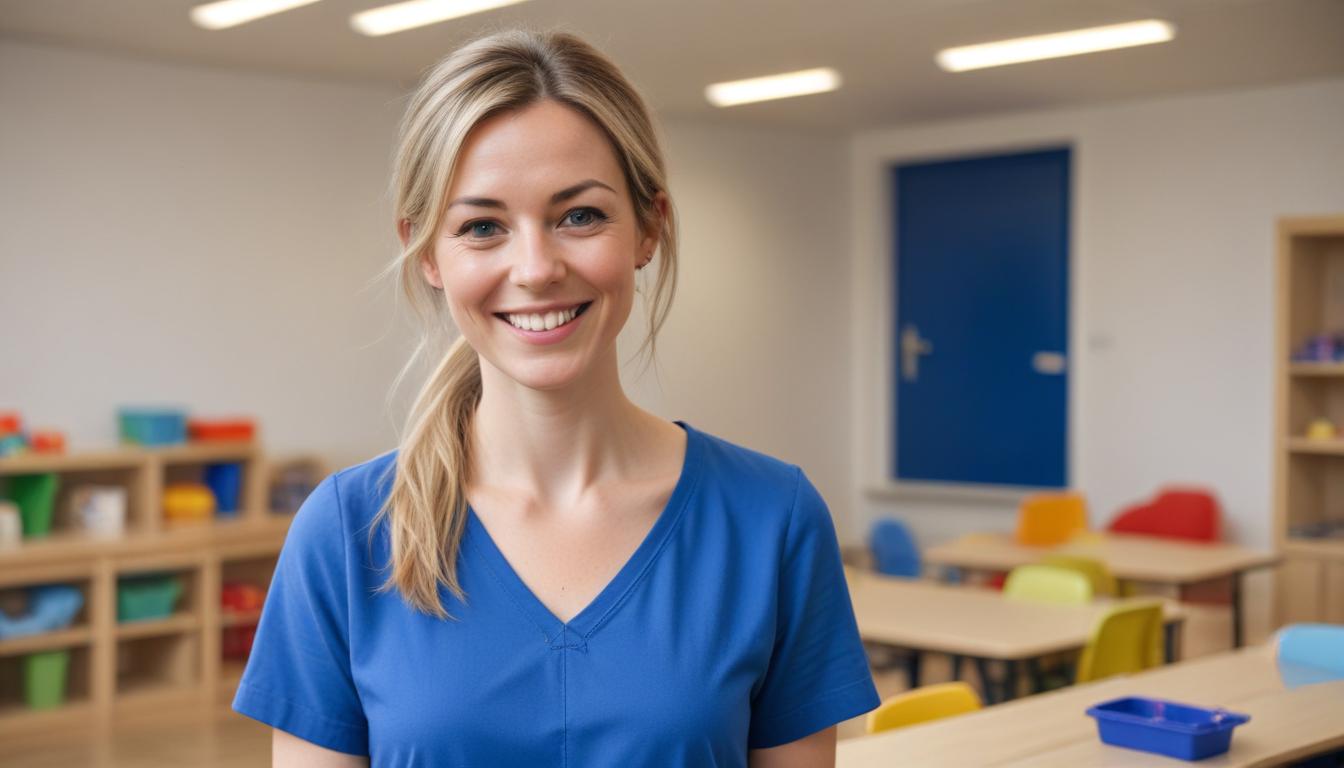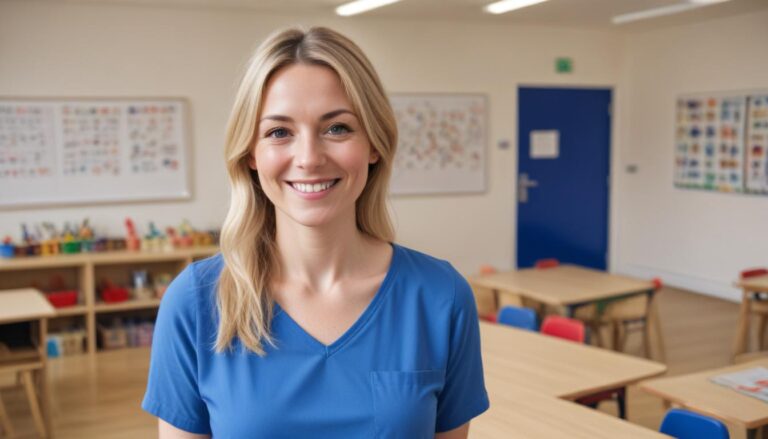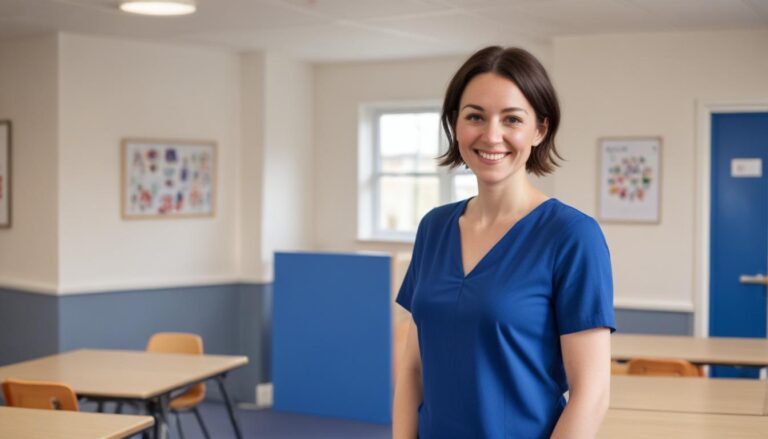
Summary
- Healthy Environment: Maintaining a clean and safe space is essential. Regular cleaning, good ventilation, and outdoor play help reduce the risk of illness.
- Hygiene Practices: Teaching proper handwashing and implementing toilet hygiene are critical for preventing infections among children.
- Nutrition and Hydration: Providing a balanced diet and ensuring children stay hydrated supports their immune systems and overall health.
- Collaboration and Education: Engaging with parents, health professionals, and educating children about health fosters a community approach to minimising ill health.
This guide will help you answer 4.1 Explain how the Early Years practitioner can minimise ill health in children.
As an Early Years practitioner, your role in minimising ill health is important. Children in early years settings are particularly vulnerable to illnesses due to their developing immune systems. Implementing effective strategies can actually reduce the risk of illness and promote a healthy environment.
Healthy Environment
Creating a clean and safe environment is a priority. Regular cleaning and maintenance reduce the spread of germs.
- Cleaning routines: Ensure toys, surfaces, and equipment are cleaned and disinfected regularly.
- Ventilation: Keep rooms well-ventilated to limit the spread of airborne illnesses.
- Outdoor play: Encourage outdoor activities, which offer fresh air and support physical health.
Hygiene Practices
Good hygiene is essential to prevent the spread of infections.
- Handwashing: Teach children how to wash their hands properly. Ensure staff and children wash hands before meals, after using the toilet, and after outdoor play.
- Toilet hygiene: Implement procedures for safe and hygienic use of toilets, including regular checks and cleaning.
- Personal items: Provide personal storage for items like hats and water bottles to prevent cross-contamination.
Nutrition and Hydration
Proper nutrition and hydration support children’s immune systems.
- Balanced diet: Offer meals that include a variety of fruits, vegetables, proteins, and grains.
- Hydration: Ensure children have access to water throughout the day.
- Food safety: Follow guidelines for food storage and preparation to avoid food-borne illnesses.
Immunisation Awareness
Immunisation protects children from common illnesses.
- Documentation: Keep records of each child’s immunisations.
- Communication: Inform parents about the importance of vaccinations and updates.
- Exclusion policies: Implement policies for unvaccinated children during outbreaks.
Infection Control
Preventing the spread of infections protects all children.
- Illness policies: Clearly define policies regarding sick children and ensure staff and parents understand them.
- Isolation procedures: Have a plan for isolating sick children until parents can collect them.
- Staff health: Encourage regular health checks and vaccinations for staff.
Emotional Wellbeing
Emotional health impacts physical health.
- Supportive environment: Create a nurturing environment where children feel safe and valued.
- Stress reduction: Incorporate activities that promote relaxation, like story time and quiet areas.
- Behaviour modelling: Model and encourage positive communication and problem-solving skills.
Education and Awareness
Educating children about health empowers them.
- Lessons on health: Incorporate age-appropriate discussions about germs and hygiene.
- Role-playing: Use role-playing games to teach children how to cover their mouths when sneezing.
- Parental collaboration: Work with parents to reinforce health education at home.
Monitoring and Assessment
Regular monitoring helps identify health issues early.
- Daily checks: Perform visual health checks as children arrive.
- Observation: Keep detailed records of any symptoms or unusual behaviour.
- Collaboration: Work with healthcare professionals for assessments when needed.
Physical Activity
Encouraging regular physical activity boosts immune function.
- Structured play: Offer a mix of free play and structured physical activities.
- Variety: Include activities that promote endurance, strength, and flexibility.
- Inclusive: Ensure activities are suitable for all children, including those with disabilities.
Risk Assessment
Identifying and managing risks prevents injury and illness.
- Regular assessments: Conduct regular risk assessments to identify potential hazards.
- Safety measures: Implement necessary safety measures such as safe storage of materials.
- Training: Ensure all staff are trained to recognise and manage risks effectively.
Emergency Preparedness
Being prepared for emergencies minimises health risks.
- First aid: Ensure staff have up-to-date first aid training.
- Emergency contacts: Maintain current emergency contact information for all children.
- Evacuation plans: Have clear evacuation and emergency response plans in place.
Involvement of Health Professionals
Liaising with health professionals provides additional support.
- Regular visits: Invite healthcare professionals to conduct health checks and provide guidance.
- Resources: Utilise external resources like leaflets and workshops for staff and parents.
- Collaboration: Work with local health services to stay informed about public health issues.
Final Thoughts
Minimising ill health in children is a collective effort. As an Early Years practitioner, you play a key role. By implementing these strategies, you help create a safe, healthy, and nurturing environment where children thrive.
Subscribe to Newsletter
Get the latest news and updates from Care Learning and be first to know about our free courses when they launch.






